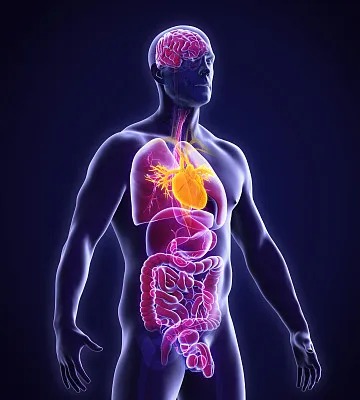Advancements in Global Management of Cardiovascular Disease
original:health91192025-02-19 11:54:15
Summary: In this article, we will explore the advancements in global management of cardiovascular disease. We will delve into the latest developments in treatment, prevention, technology, and resear
Summary: In this article, we will explore the advancements in global management of cardiovascular disease. We will delve into the latest developments in treatment, prevention, technology, and research, highlighting the progress made in tackling one of the leading causes of death worldwide.
1. Treatment Innovations

Advancements in the treatment of cardiovascular disease have revolutionized patient care. From minimally invasive procedures like angioplasty and stenting to cutting-edge surgical techniques such as robotic-assisted heart surgeries, patients now have access to a range of innovative treatment options. These advancements have significantly improved outcomes and patient quality of life.
Furthermore, the development of personalized medicine and targeted therapies has enabled healthcare providers to tailor treatment plans to individual patients, improving efficacy and reducing side effects. Breakthroughs in pharmacology have also led to the discovery of new drugs that target specific pathways involved in cardiovascular disease, offering hope for more effective treatment strategies.
Research efforts in regenerative medicine and stem cell therapy hold promise for repairing damaged heart tissue and restoring cardiac function, representing a potential paradigm shift in the treatment of cardiovascular conditions.
2. Prevention Strategies
Preventive measures play a crucial role in reducing the burden of cardiovascular disease globally. Public health initiatives focusing on promoting healthy lifestyle choices, such as regular exercise, balanced diet, smoking cessation, and stress management, have been instrumental in lowering the risk factors associated with heart disease.
Advancements in digital health technologies, including wearable devices and mobile applications, have empowered individuals to monitor their cardiovascular health in real time and take proactive steps to prevent heart-related complications. Telemedicine and remote patient monitoring have also facilitated access to healthcare services, especially for individuals in remote or underserved areas.
Educating the public about the importance of early detection and screening for cardiovascular risk factors has been a cornerstone of prevention strategies, leading to increased awareness and improved outcomes for at-risk populations.
3. Technological Innovations
The integration of cutting-edge technology has transformed the management of cardiovascular disease on a global scale. Advancements in imaging modalities such as cardiac MRI, CT angiography, and 3D echocardiography have revolutionized diagnostic capabilities, allowing healthcare professionals to accurately assess cardiac function and structure.
Artificial intelligence and machine learning algorithms have been employed to analyze complex cardiovascular data, predict disease progression, and personalize treatment plans. Robotic-assisted surgeries have enhanced precision and dexterity in performing intricate cardiac procedures, leading to better surgical outcomes and faster recovery times.
The development of bioresorbable stents and implantable devices has reduced the risk of long-term complications in patients undergoing coronary interventions, ushering in a new era of interventional cardiology with improved patient safety and outcomes.
4. Research Breakthroughs
Ongoing research efforts in cardiovascular disease have yielded groundbreaking discoveries that have advanced our understanding of the underlying mechanisms of heart disease. Genomic studies have identified genetic markers associated with cardiovascular risk, paving the way for personalized risk assessment and targeted interventions.
Cutting-edge research in vascular biology, pharmacology, and epidemiology has provided insights into novel therapeutic targets and treatment strategies for various cardiovascular conditions. Clinical trials evaluating novel drugs, gene therapies, and regenerative interventions are shaping the future of cardiovascular care, offering hope for more effective and tailored therapies.
Collaborative research initiatives and global partnerships have accelerated the pace of discovery and translation of scientific knowledge into clinical practice, fostering a collaborative ecosystem of innovation in the fight against cardiovascular disease.
Summary:
In conclusion, the advancements in global management of cardiovascular disease have significantly transformed the landscape of cardiac care, offering new hope and improved outcomes for patients worldwide. From innovative treatment modalities and prevention strategies to technological breakthroughs and cutting-edge research, the field of cardiovascular medicine continues to evolve, bringing us closer to a world where cardiovascular disease is no longer a leading cause of morbidity and mortality.
This article is published by HEALTH9119 Medical Health Network https://www.health9199.com arrangement